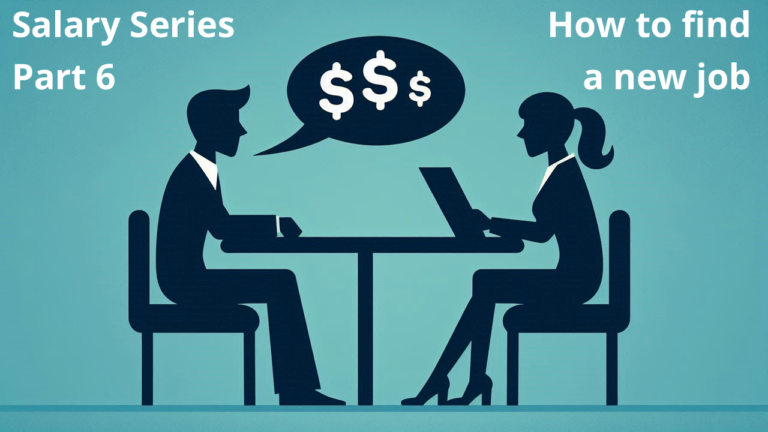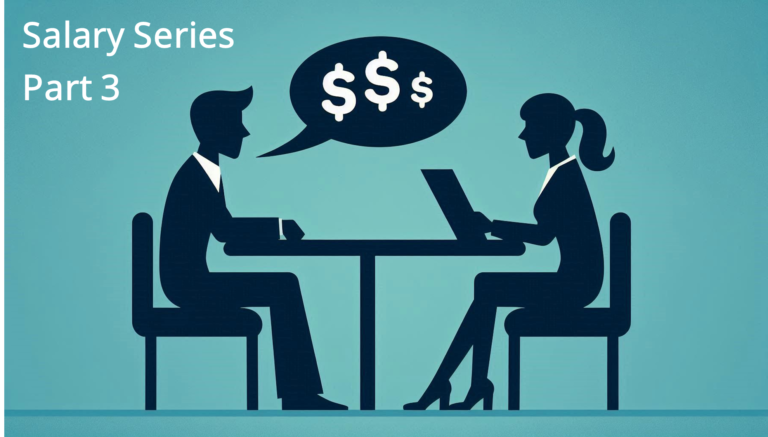“You can have everything you want in life. Just not all at the same time.”
Brianna wiest
Key Takeaways
- Oftentimes, options for big decisions are difficult due to what appears to be “equally weighted” trade-offs
- The root cause is often a lack of clarity of values and goals, followed by
- Reframing the problem creates opportunities for win-win situations (at the expense of a different trade-off)
- Choosing to play a different metagame enables you to rewrite the terms of engagement
Introduction
Not too long ago, I was at a crossroads when exploring post-strategy consulting exit opportunities. At the peak, I had multiple live opportunities, which converted to actual verbal job offers. The two most appealing were 1) A high-profile, public-facing role in an established, global fintech, and 2) a stable tech company with high-performing teams, work-life balance and an excellent culture.
This presented a dilemma. I was the “FS guy” with 15+ years consulting for and working in financial services firms. Option 1 made sense, consistent with my financial services track record. But I also valued culture and work-life balance, especially after ~70+ hour high-intensity work weeks where I was “always on”. Option 2, whilst extremely appealing, was in an entirely different industry.
I struggled with the choice; creating a pros and cons list, dissecting employee career trajectories on LinkedIn, interviewing current and former employees of both companies for due diligence, and consulting family and friends for advice. It was a difficult decision, but I eventually made a decision aligned with financial goals and personal values at this stage in my life, especially with a young family (I’m sure you can guess which option I chose). I did not make the decision lightly.
Life constantly throws us into difficult decisions, especially regarding money, careers, and big life transitions. These aren’t questions with clear-cut answers. Instead, we face complex trade-offs where each choice comes with its benefits and sacrifices.
I see these “either-or” dilemmas asked all the time on Reddit, social media, and in conversations with friends, looking for advice on deciding between the options.
What are examples of “either-or” dilemmas?
In personal finance and careers, some common questions are:
- Should I take a high-paying job with long hours and stress, or a lower-paying one with better work-life balance and good culture? I’ve been doing this role for 4 years, and I’m starting to burn out. I want something with fewer hours and pressure, but I’ll have to take a pay cut
- Should I work a few more years to increase my retirement fund, or retire early with less? I have some money to last me for a while in retirement, but I’m not sure if it’s enough for a comfortable retirement
- Should I save more for the future or spend more on enjoying the present? I don’t know what the optimal savings rate is, and I’ve worked hard and deserve to spend more on myself
- Should I invest in individual stocks, unit trusts, or index funds? I always have FOMO that I’ll miss out on the next Nvidia. Also, my friend is trying to sell me unit trusts and talks about how good the 3-year return has been
- Should I buy or rent? Renting is cheaper and more flexible, but I want to own a home to call home and not pay rent anymore
Why do these “either-or” dilemmas occur?
These dilemmas all have trade-offs, and yet, even when the differences are laid out, people still struggle to choose. Why? Because it often reflects a deeper issue: a lack of clarity on specific goals and values.
Let’s take the example of the long hours, high-salary job versus a lower-salary job with work-life balance. If you’re clear on what matters most to you, whether it’s money, time, (mental) health, or even purpose, the answer becomes obvious. But most people haven’t defined their priorities, let alone identified what are their financial or life goals.
Do you have explicit SMART goals, laid out in a detailed financial plan? That solves 90% of dilemmas. If yes, then what you’ve written down is not aligned with your life values and priorities.
Let me reiterate how important it is to have goals and plans explicitly written out. Keeping supposed “goals” and a “FIRE target” in your head is not the same thing. Putting in the actual effort to explicitly write out a financial plan results in clarity, focus, and the ability to identify gaps or misalignments. It really helps you identify what you truly value and what you prioritise in life. It is hard work
Now that we’ve gotten that out of the way (I’m assuming you’ve completed this step), many decisions should be a lot easier.
Going back to the example of that stressful, high-paying job versus a more relaxing job with lower pay, you would just need to refer to your financial plan and financial model and check if you can achieve your financial goals with the more relaxing job. If you can, why wouldn’t you choose that?
However, sometimes you may still struggle to decide between the options. For some reason, you really can’t decide. Is there a better way to choose?
You might feel stuck because your “either-or” dilemma is a false dichotomy, a type of logical fallacy where two options are presented as if they are the only choices available. Most of the time, there may be other options.
You just need to reframe the problem and ask the right question.
Reframing the problem using a win-win mindset
The truth is, there will always be a trade-off, a sacrifice or an opportunity cost. We live in a reality where resources are finite (for example, time, money, energy). All decisions and actions require an expenditure of resources (even inaction), resulting in trade-offs or sacrifices.
However, what you can control is deciding what trade-off to make. And the immediate trade-offs may not be the best trade-off to sacrifice to achieve your goals.
That’s where reframing the problem helps with clarity in decision-making. By reframing the problem, asking a different question, and identifying new potential trade-offs, you can transform the original trade-off to become a win-win.
How you think about the problem is more important than the actual answer (options), because how you define the problem determines your options. Essentially, what is the right question to ask?
Let me explain how I view the different meta-levels in decision-making dilemmas.
The Meta-levels of “either-or” dilemmas
Again, let’s use the example of the long-hours high-salary job versus a lower-salary job with work-life balance.
- Meta Level 1 – Surface Evaluation (aka “Obvious options”)
You’re comparing options directly and weighing the obvious pros and cons.
Example: Should I take the higher salary or the better work-life balance? - Meta Level 2 – Middle Ground (aka “The Compromise”)
You try to compromise and get a bit of both.
Example: Take the job with better hours, but try to negotiate for some extra benefits or allowances. - Meta Level 3 – Reframe the Problem (aka “Win-Win”)
You step back and look for a different (often harder) path that solves for both.
Example: Ask yourself, “How and where do I find roles that offer both a high salary and work-life balance?”. It might take more time and effort, but they do exist, and the long-term reward is better.
In Meta-level 1, your frame assumes only a limited set of options. You’re stuck because you don’t want to make those specific trade-offs or sacrifices.
In Meta-level 2, you’re trying to figure out how to strike a balance. Sometimes it works, but often it’s just a compromise where you end up feeling like you could have achieved better outcomes.
Meta level 3 reframes your thinking so you choose something else to trade off instead of the original options. Typically, this would be something lower in your hierarchy of values (compared to the original options). This trade-off, being lower ranking in your value system, would be a better trade-off in order not to lose one of the original options.
The trick is to shift from a scarcity mindset (“I can only have one”) to an open, strategic mindset (“What other trade-offs can I make so that both options are viable?”)
Real-world examples of reframing
Here are some ways to reframe typical dilemmas:
- Company A (high pay, long hours) or Company B (lower pay, better hours)?
→ Put in the effort to find Company C, a rare opportunity that offers both. It’s hard, but not impossible. You sacrifice the current offers on the table and time/effort spent hunting rigorously, exploring every single job ad, expanding your network, just to find Company C - Work longer to grow your nest egg or retire early with less?
→ Retire early and take on a part-time role, passion project, or consulting gig that gives both fulfilment and supplemental income (similar to CoastFIRE). You sacrifice early achievement for a slower, gradual goal. - Save or Spend?
→ Earn more. With higher income, you can save aggressively and spend guilt-free on meaningful luxuries. You sacrifice your time and energy to get a higher income. - Stocks, Unit Trusts, or Index Funds?
→ Do both. Index funds for your core strategy, and a small “fun money” portfolio for individual stock picks to scratch the itch. - Buy or Rent?
→ Keep renting while investing the difference. Build up a downpayment AND your understanding of your future housing needs while monitoring the market for a subsale bargain (because by now you should know off-the-plan property purchases are risky). You sacrifice more money and time renting at the expense of building financial security before buying a value-for-money property
Are there only 3 meta-levels?
Perhaps. However, there is a whole other meta that you can play:
Alternate Meta – Play a Different Game (aka “My own terms”)
You redefine the terms completely.
Example: Build your own business or create passive income streams to eliminate the need to choose between money and time. You will need to hustle to build the business, but after a few years, you might get a big payout and secure financial freedom early
Final Thoughts
What I’m talking about here isn’t some philosophical, pseudo-intellectual answer to making difficult life choices. It is a practical way to reframe your dilemmas into opportunities to get the most you want out of life.
Trade-offs are always part of life, especially when they relate to personal finance. But that doesn’t mean you always have to settle. With clear goals, strategic planning, and putting in the effort to think deeper, you might find hidden options that make you come out on top.
In the end, you can have everything you want in life, just not all at the same time.



